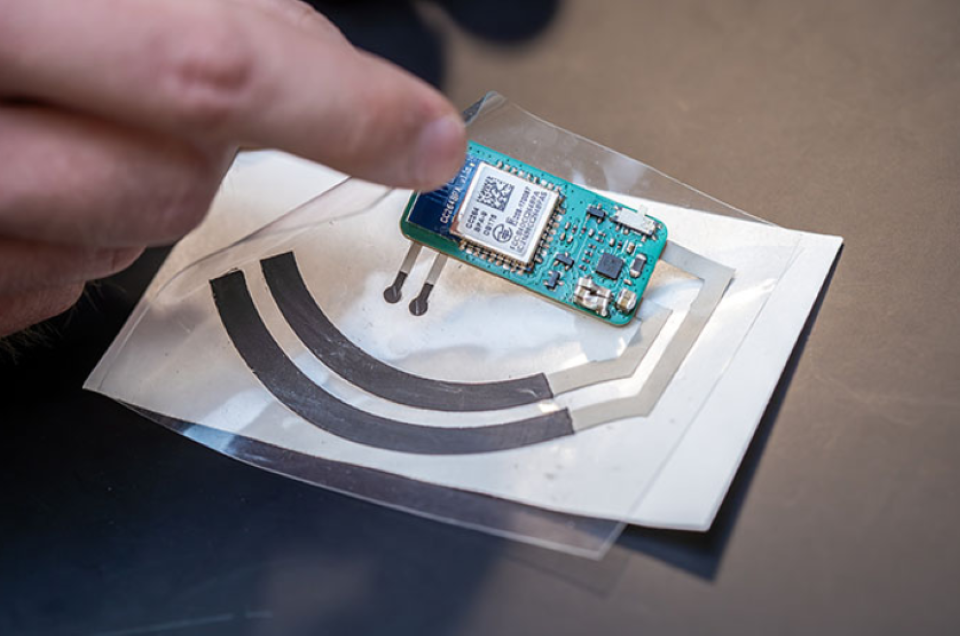The flexible sticker attaches to the outside of a drinking cup and collects trace amounts of sweat as a person grips the cup. Within minutes, the system harvests enough power from the sweat to analyse it for vitamin C and wirelessly sends the results to a nearby laptop. The device is detailed in Biosensors and Bioelectronics.
“By turning everyday objects like cups or bottles into smart sensors, people can gain real-time insights into their health and wellness without changing a thing about their daily routine,” said study co-senior author Patrick Mercier, a professor in the Department of Electrical and Computer Engineering at the UC San Diego Jacobs School of Engineering. “We’re moving toward a future of ‘unawareables’ – devices that are unobtrusive and essentially invisible so that you are unaware that you’re even using them. You just go about your day, and your drinking cup can give you access to all this rich information.”
Vitamin C plays a role in immune function, tissue repair and iron absorption, but testing for it currently requires blood draws, specialised laboratory equipment and costs around $50 per test in the US. Consequently, frequent monitoring is impractical for many people.
Low-cost Alternative
Built on a flexible, adhesive polymer sheet, the system integrates screen-printed electronic components. A porous hydrogel pad mounted on the sticker collects sweat from the fingertips and a built-in biofuel cell converts chemicals in the sweat into electricity, which powers a custom printed circuit board and the vitamin C sensor. The circuit board reads signals from the vitamin C sensor and wirelessly transmits the data via Bluetooth low energy.
“Most people only get a snapshot of their health once a year at the doctor. But our bodies change much more frequently than that,” said Mercier. “We want to make access to health data as frequent and effortless as holding your morning coffee cup.”
Sticker Features
Another feature of the sticker is that it generates power without requiring physical exertion from the user; fingertips contain over a thousand sweat glands and can produce between 100 to 1000 times more sweat than most other areas on the body. This steady seep of natural perspiration provides a continuous energy source that allows the sticker to operate when the user is at rest.
Furthermore, the battery-free system has the potential to be manufactured for a few cents per unit. Its affordability could also make future versions of the system disposable and widely accessible, particularly in low-resource areas.
In tests, the device was stuck onto a disposable drinking cup and accurately tracked changes in vitamin C levels after participants took a supplement or drank orange juice. The device powered itself for more than two hours using only sweat-derived energy.
The team plans to expand the technology to measure additional nutrients and biochemicals. Future versions could send readings directly to smartphones or smartwatches to provide real-time tracking of personal health data throughout the day.

